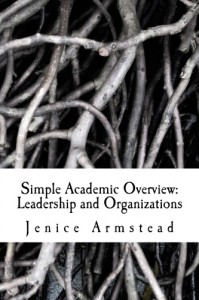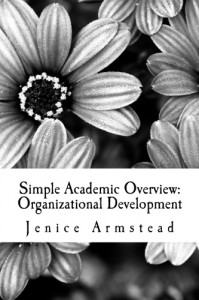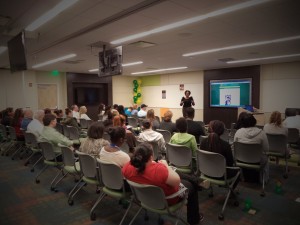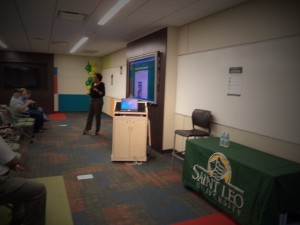Understanding Individual Behaviors and Emotional Development
Academic Review by Jenice Armstead
Abstract
This paper gives and overview of the purpose of classroom management as it pertains to the understanding of individual behaviors and emotional development of students. Motivational factors are contributing attributes for the potential success of a student. Structured lectures and lesson plans assist with the students’ ability to function and develop within a course and the utilization of advanced educational technology enables students to exhaust additional resources for academic success.
Keywords: ARCS Model of Motivation, development, stimulation, technology
Classroom Management: Understanding Individual Behaviors and Emotional Development
Classroom management requires an understanding of individual behaviors and emotional development as well as group dynamics. The ARCS Model of Motivation: Attention (A), Relevance (R), Confidence (C), and Satisfaction (S), is one method an educator uses to facilitate the dynamic of the student experience in classroom management (Keller, 1987). Students require a variety of components for educational success. The students’ growth and development depends on the ability to effectively understand the curriculum. The responsibility of the educator is to teach, encourage and motivate the student to achieve the highest understanding of the topic. Qualitative factors of student development and behavior toward curriculum suggest the educator utilizes a blend of understanding student motivational factors, sound organizational strategies, and access to advanced technologies.
Academic motivation of a student begins with the individual behaviors and emotional development. Motivational stimulation is vital to understanding how to develop and manage the students’ classroom experience. The ARCS Model of Motivation explains the facets of attributed learning comprehension of the student as it relates to motivation (Keller, 1987). Using a positive direction along with high intensity curriculum, the ARCS Model of Motivation moderates intensity factors (Guven, 2009). There is a familiarity of expectation out of a course from a students’ perspective, which drives the students’ initial motivational factors. To effectively motivate students, educators need to analyze and identify each student’s individual motivational necessities.
The educator is responsible for recognizing when a student is lacking motivation and experiencing difficulty in the class. The educator must strive to build the confidence of the student through a structured curriculum for the student to learn in a more effective way. Active and constant communication between the educator and student are vital tools for the success of the student. A strategically developed classroom lecture provides the student a course outline for the expectations of the student in the course. A weekly detailed course module gives the student an academic flow chart of topics, assignments, and due dates. The lecture and classroom management structure is the responsibility of the educator, and utilizing advanced educational technology permits for a fluid student academic experience.
The 21st Century classroom is designed, developed and determined by group dynamics used within advanced educational technology. Students are encouraged to use a multitude of educational technologies to include software such as Turn It In.com, Grammarly, Smart Thinking and eBooks. Students have the ability to interact directly with peers, educators, and libraries using online resources. For technology to be a successful tool in the curriculum, the student must feel comfortable with the software being used (Palloff & Pratt, 2003). Educators offer online lectures and “Virtual Office” hours, which can enhance communication and assistance in a technologically dominant learning environment.
Classroom management strategies involve a sympathetic arrangement of understanding individual student behaviors, development tactics, and effective learning dynamics. Promoting a positive environment that motivates the student starts with the four dimensions of the ARCS Model of Motivation: Attention (A), Relevance (R), Confidence (C), and Satisfaction (S) (Keller, 1987). Students require constant academic reassurance and stimulation. Each student is an individual when it comes to learning tactics; effective educators understand that not all students learn the same way. Planning, implementing and developing course lectures are important factors of how the student understands course topics. Immediate access to resources, such as: online forums, email and live librarian chat sessions enable students to grow with technology. Effective academic classroom management starts with an understanding of the students’ academic and behavioral needs, strategic plan, effective communication, and utilization of technology.
References
Guven, M. (2009). The Epistemological Beliefs of Distance Education
Students. Turkish Online Journal Of Distance Education (TOJDE), 10(3), 217-246.
Keller, J. M. (1987). Development and use of the ARCS model of motivational design. Journal of Instructional Development, 10(3), 2 – 10.
Palloff, R. M., & Pratt, K. (2003). The Virtual Student: A Profile and Guide to Working with
Online Learners. Jossey-Bass.
Like this:
Like Loading...











